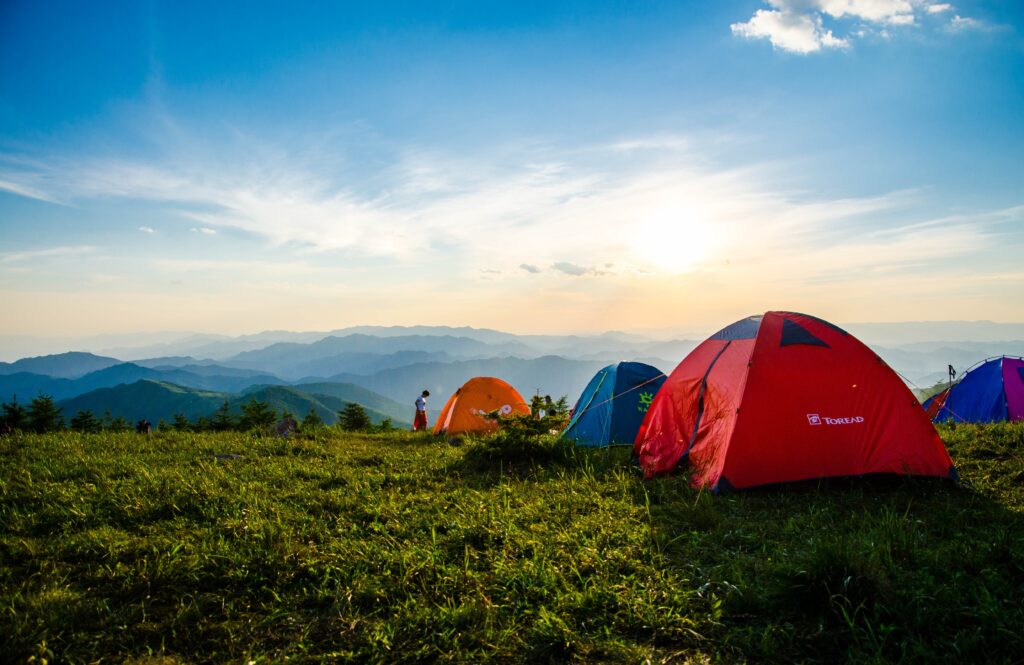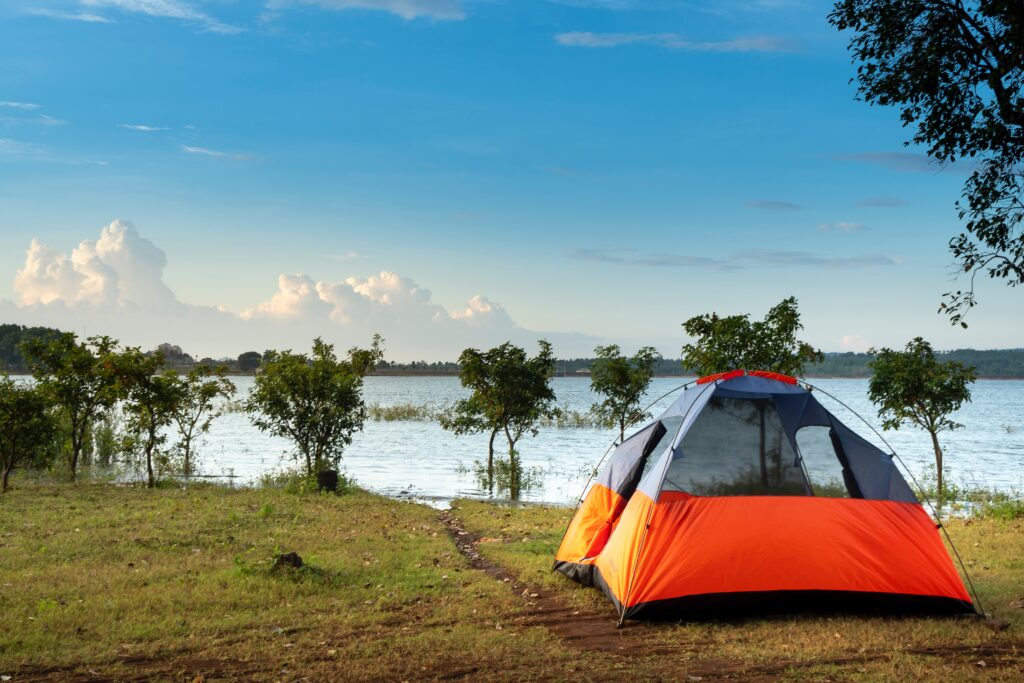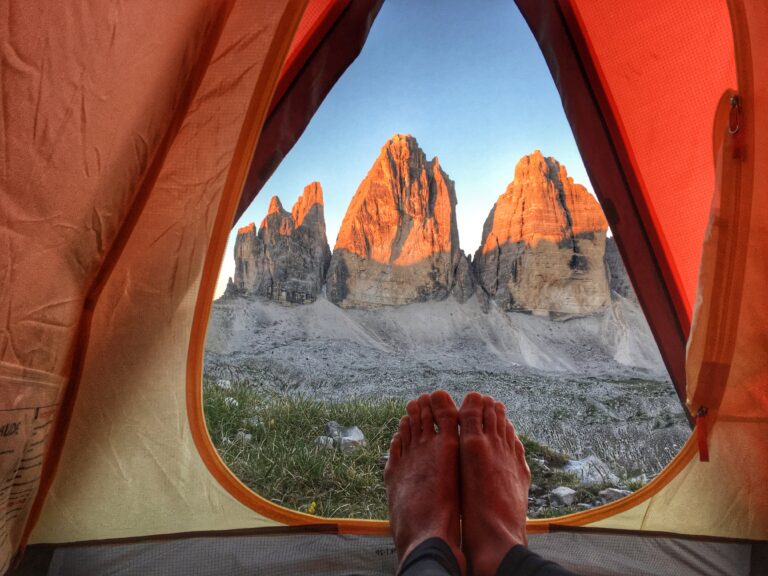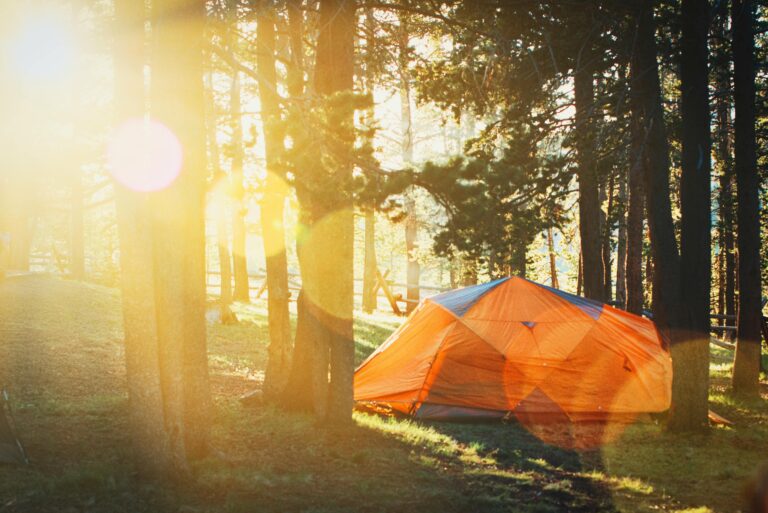
How to Find the Best Backpacking Tent
Embarking on a backpacking adventure can be a transformative experience, offering a blend of freedom, challenge, and connection with nature. Central to this experience is your choice of shelter — your home away from home. Learning how to find the best backpacking tent is not just about securing a place to sleep; it’s about ensuring your safety, comfort, and enjoyment in the great outdoors. With so many options available, understanding how to find the best backpacking tent can be overwhelming. This guide is crafted to simplify that process, helping you to identify the best backpacking tent that aligns with your unique camping style and needs.
Whether you are a seasoned backpacker or a novice about to embark on your first trek, understanding the key factors that make a great outdoor shelter is crucial. From ultralight tents for solo hikers to spacious domes for group campers, the perfect tent for you is the one that balances your specific requirements with the unpredictable nature of outdoor adventures. Throughout this guide, we will explore various aspects such as weight, durability, weather resistance, comfort, and budget, all of which play a pivotal role in your tent selection process.
Moreover, we will revisit an earlier blog post of mine, “The 5 Best Backpacking Tents,” to provide additional insights and recommendations. This will give you a comprehensive view of some top-rated options in the market, further aiding your decision-making process.
So, let’s embark on this journey together to discover the best backpacking tent that will be your trusted companion on many memorable adventures to come.

What is backpacking?
Backpacking is an outdoor adventure that combines hiking and camping, allowing you to explore nature while carrying all your necessary gear in a backpack. This self-sufficient way of traveling involves trekking through diverse terrains and setting up camp in different locations, often in more remote or wilderness areas. It’s an activity that not only tests your physical endurance and navigational skills but also offers an unparalleled sense of freedom and connection with the natural world. Whether you’re on a multi-day hike through mountains or a quick overnight trip in a nearby national park, backpacking is about immersing yourself in the outdoors and embracing the simplicity of living off what you can carry on your back.
Understanding Your Camping Needs
Selecting the best backpacking tent is not a one-size-fits-all process. Consequently, it’s essential to understand your specific camping needs, as they significantly influence the type of tent that is best for you. Below are key aspects to consider:
Assessing Your Camping Style
First and foremost, identify your camping style. Are you a solo adventurer who values minimalism and speed, or do you enjoy camping with a group where space and comfort are priorities? Accordingly, your camping style will dictate the size, weight, and features you need. For example, solo campers might opt for a lightweight, one-person tent, whereas those who camp with family or friends might need a larger, more robust model. Therefore, understanding your style is the first step in narrowing down your choices to find the best backpacking tent for your adventures.
Considering the Weather Conditions
Your tent is your shield against the elements, making it crucial to consider the typical weather conditions you’ll encounter. Will you be camping in areas prone to heavy rain, strong winds, or perhaps extreme temperatures? Similarly, if you’re a fair-weather camper, your needs will differ from someone who treks in more challenging conditions. Features like a sturdy rainfly for wet weather, ventilated design for hot climates, and strong poles and anchors for windy conditions are essential. This consideration ensures that your chosen tent can withstand the elements you’re most likely to face.
Frequency and Duration of Your Trips
Additionally, how often and how long you go camping plays a significant role in your choice of tent. If you’re a frequent backpacker, investing in a high-quality, durable tent that can withstand regular use is a smart choice. Conversely, if your camping trips are occasional, prioritizing affordability might be more suitable. Moreover, for longer excursions, comfort becomes more critical, so you may want a tent with more living space, pockets for storage, and other amenities. However, for short, quick trips, a basic, lightweight tent might suffice.
Personal Preferences and Comfort
Finally, personal comfort and preferences are vital in choosing your tent. Some campers prefer a tent with enough room to stand up in, while others might prioritize a tent with a small footprint for more secluded camping spots. Features like vestibules for gear storage, mesh panels for stargazing, and color-coded poles for easy setup are important to consider. It’s these personal touches that transform a tent from being just a shelter to a comfortable, enjoyable home base in the wilderness.

Key Features to Look For in a Backpacking Tent
Choosing the best backpacking tent goes beyond personal preferences and camping style. Certain key features are essential to consider for safety, comfort, and practicality. Here’s what to look for:
Weight and Portability
When backpacking, the weight of your tent is a critical factor. A lighter tent makes hiking more manageable, especially over long distances or rough terrain. However, it’s essential to balance weight with durability and protection. Ultralight tents are great for minimizing your load, but they might not offer the same level of durability and weather resistance as slightly heavier models. Consider your physical capabilities, the nature of your hikes, and how much weight you’re willing to carry to determine the best backpacking tent in terms of weight and portability.
Material and Durability when deciding How To Find The Best Backpacking Tent
The materials used in your tent determine its durability, weather resistance, and lifespan. Look for high-quality fabrics that can withstand wear and tear, such as ripstop nylon or polyester. The tent’s poles and stakes are equally important; materials like aluminum or carbon fiber offer a good balance of strength and lightness. Also, consider the waterproof ratings of the tent fabric and the quality of the seams. A well-constructed tent using durable materials might be a bit more expensive, but it’s a worthwhile investment for regular backpackers.
Ease of Setup
After a long day of hiking, you’ll appreciate a tent that’s easy to set up. Look for tents with features like color-coded poles, freestanding designs, and simple clip-on attachments. These features can significantly reduce the time and effort required to set up your tent, making your camping experience more enjoyable. This is especially important if you often arrive at your campsite late or need to set up in adverse weather conditions.
Comfort and Space
While backpacking tents are typically smaller than traditional camping tents, comfort and space are still important. Consider the tent’s peak height, floor dimensions, and whether it has enough room to comfortably sleep and store your gear. If you’re taller or need more space to move around, look for a tent with a higher ceiling and a larger footprint. Additionally, features like mesh windows for ventilation, interior pockets for organization, and vestibules for extra storage can enhance your comfort and convenience in the tent.

Budget Considerations
When searching for the best backpacking tent, budget is an essential factor. The cost of a tent can vary widely, and it’s important to find a balance between quality and affordability. Here’s how to approach budget considerations:
Price vs. Quality
In the journey of finding the best backpacking tent, it’s vital to weigh the price against the quality. While it may be tempting to opt for the cheapest option, it’s important to remember that a tent is an investment in your safety and comfort. Higher-priced tents often offer better materials, durability, and features, which can be crucial in challenging conditions. Conversely, if you’re an occasional camper, a less expensive tent might be more appropriate. Aim to find a tent that offers the best value for your specific needs and budget.
Long-term Investment
Considering your tent as a long-term investment is key in determining how to find the best backpacking tent. Quality tents may come with a higher upfront cost, but they often pay off in the long run with their durability and performance. This is particularly true if you’re an avid backpacker who frequents various environments. Investing in a high-quality tent means fewer replacements and repairs over time, ultimately saving money and hassle. Therefore, it’s advisable to consider the long-term benefits and not just the initial cost.

Making an Informed Decision
When it comes to understanding how to find the best backpacking tent, making an informed decision is crucial. This involves gathering as much information as possible and considering various factors that align with your personal needs and preferences.
Gathering Information on How to Choose the Best Backpacking Tent
Embarking on the process of finding the best backpacking tent begins with thorough research. Delve into the different types and models of tents available in the market. Look at specifications, compare features, and read reviews from other backpackers. This step is essential in narrowing down your options and getting a clearer idea of what works best for different camping styles and conditions.
Leveraging Expert Opinions and Guides
In your quest to find the best backpacking tent, seeking expert opinions and utilizing comprehensive guides can be incredibly beneficial. Experienced backpackers, outdoor gear specialists, and detailed guides (like this one) offer valuable insights that can influence your decision. They provide practical advice based on real-world experiences, helping you to understand the nuances of different tents and what might be the best fit for your backpacking adventures.
Testing Tents When Possible
If the opportunity arises, testing different tents can significantly aid in making the best choice. Many outdoor stores offer demo tents or organize outdoor expos where you can see, touch, and even set up various tent models. This hands-on experience can be invaluable, giving you a feel for the ease of setup, space, and overall comfort, which can be difficult to gauge online or from descriptions alone.
Final Thoughts on How to Find the Best Backpacking Tent
In conclusion, finding the best backpacking tent is a journey that intertwines personal needs, environmental considerations, and practical features. From assessing your camping style and weather conditions to weighing budget constraints and personal comforts, each aspect plays a pivotal role in guiding you towards the ideal choice. Remember, the best backpacking tent is one that not only provides shelter but also enhances your overall outdoor experience. By carefully considering the advice outlined in this guide, you’ll be well-equipped to make an informed decision, ensuring countless memorable adventures under the stars.